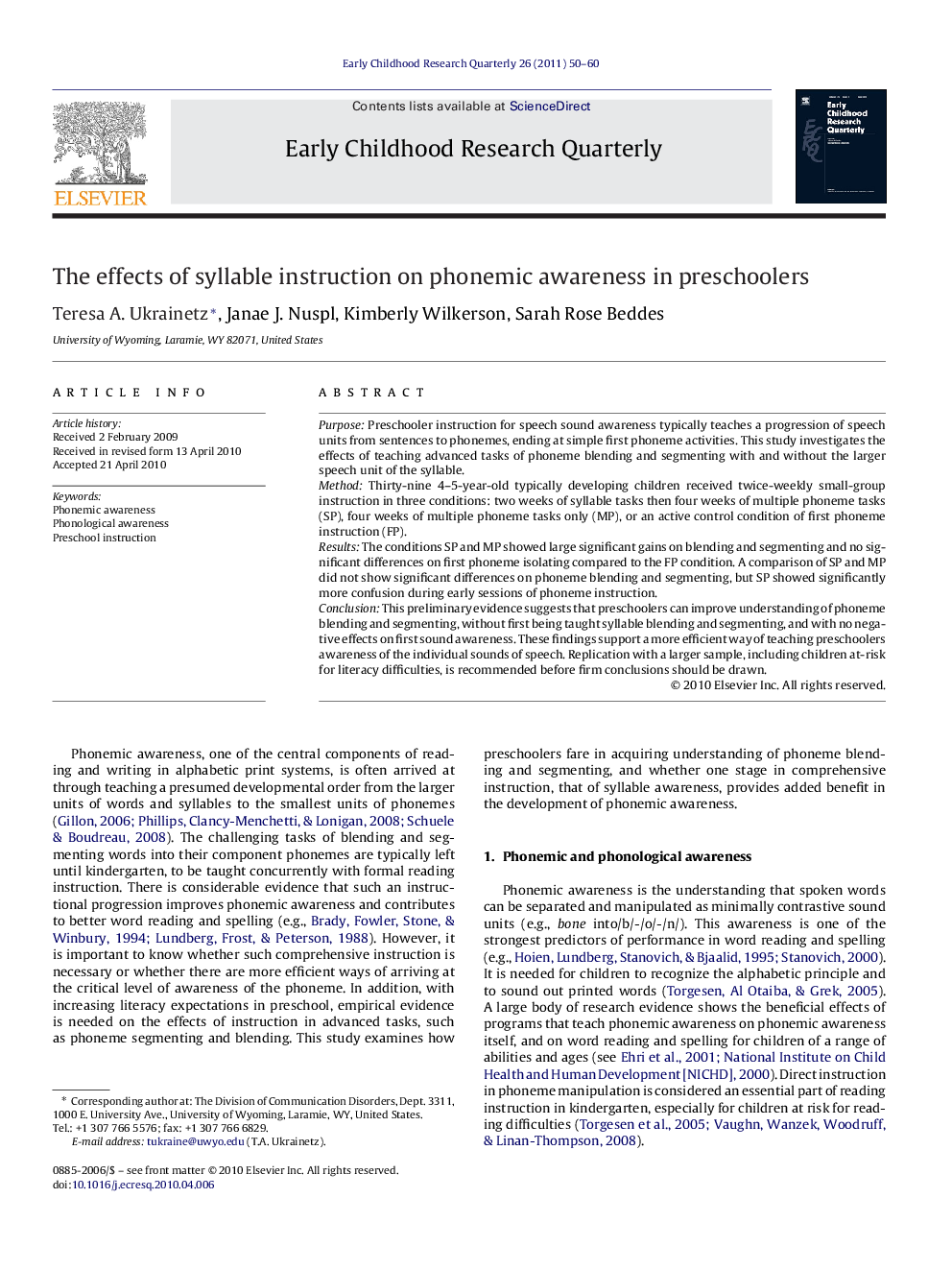| Article ID | Journal | Published Year | Pages | File Type |
|---|---|---|---|---|
| 354164 | Early Childhood Research Quarterly | 2011 | 11 Pages |
PurposePreschooler instruction for speech sound awareness typically teaches a progression of speech units from sentences to phonemes, ending at simple first phoneme activities. This study investigates the effects of teaching advanced tasks of phoneme blending and segmenting with and without the larger speech unit of the syllable.MethodThirty-nine 4–5-year-old typically developing children received twice-weekly small-group instruction in three conditions: two weeks of syllable tasks then four weeks of multiple phoneme tasks (SP), four weeks of multiple phoneme tasks only (MP), or an active control condition of first phoneme instruction (FP).ResultsThe conditions SP and MP showed large significant gains on blending and segmenting and no significant differences on first phoneme isolating compared to the FP condition. A comparison of SP and MP did not show significant differences on phoneme blending and segmenting, but SP showed significantly more confusion during early sessions of phoneme instruction.ConclusionThis preliminary evidence suggests that preschoolers can improve understanding of phoneme blending and segmenting, without first being taught syllable blending and segmenting, and with no negative effects on first sound awareness. These findings support a more efficient way of teaching preschoolers awareness of the individual sounds of speech. Replication with a larger sample, including children at-risk for literacy difficulties, is recommended before firm conclusions should be drawn.
